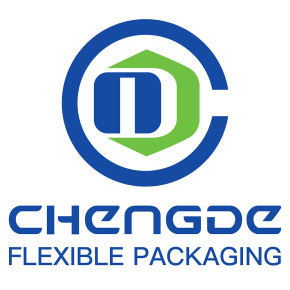The Future of Sustainable Living: Understanding Recyclable Frozen Food Packaging
Release time:
2025-06-09
As the world becomes increasingly aware of the environmental challenges we face, the demand for sustainable packaging solutions has surged. One area gaining attention is recyclable frozen food packaging, which plays a crucial role in reducing waste and promoting recycling within the food industry. This innovative approach not only benefits the environment but also meets the growing consumer demand
As the world becomes increasingly aware of the environmental challenges we face, the demand for sustainable packaging solutions has surged. One area gaining attention is recyclable frozen food packaging, which plays a crucial role in reducing waste and promoting recycling within the food industry. This innovative approach not only benefits the environment but also meets the growing consumer demand for eco-friendly products.
Recyclable frozen food packaging refers to materials used to package frozen food items that can be processed and repurposed at recycling facilities. Unlike traditional packaging, which may contain non-recyclable plastics or composite materials, recyclable options are designed with sustainability in mind. These materials can often be broken down and transformed into new products, thus closing the loop in the packaging lifecycle.
One of the primary benefits of recyclable frozen food packaging is its potential to minimize landfill waste. When consumers are provided with packaging that can be easily recycled, they are more likely to participate in recycling programs. This not only reduces the amount of waste generated but also conserves resources by allowing materials to be reused rather than discarded. By supporting recyclable packaging, businesses can contribute to a more circular economy, where materials are continuously repurposed and utilized.
Additionally, recyclable packaging can enhance a brand's reputation. As consumers become more environmentally conscious, they tend to favor products that align with their values. By adopting recyclable frozen food packaging, companies can demonstrate their commitment to sustainability, potentially attracting more customers. This shift towards eco-friendly solutions can also help businesses differentiate themselves in a competitive market.
It is important to note that the effectiveness of recyclable frozen food packaging depends not only on the materials used but also on the infrastructure available for recycling. Companies must work closely with recyclers and waste management systems to ensure that the packaging can be effectively processed. Consumer education is also vital; informing customers about how to properly dispose of packaging can significantly improve recycling rates.
In conclusion, recyclable frozen food packaging represents a promising advancement towards a more sustainable food industry. By prioritizing the use of recyclable materials, businesses can significantly reduce their environmental impact while catering to the growing demand for eco-friendly products. As consumers continue to seek out sustainable options, investing in recyclable packaging will not only benefit the planet but also enhance brand loyalty and market presence. Embracing this shift is an essential step towards a greener future.
Recyclable frozen food packaging refers to materials used to package frozen food items that can be processed and repurposed at recycling facilities. Unlike traditional packaging, which may contain non-recyclable plastics or composite materials, recyclable options are designed with sustainability in mind. These materials can often be broken down and transformed into new products, thus closing the loop in the packaging lifecycle.
One of the primary benefits of recyclable frozen food packaging is its potential to minimize landfill waste. When consumers are provided with packaging that can be easily recycled, they are more likely to participate in recycling programs. This not only reduces the amount of waste generated but also conserves resources by allowing materials to be reused rather than discarded. By supporting recyclable packaging, businesses can contribute to a more circular economy, where materials are continuously repurposed and utilized.
Additionally, recyclable packaging can enhance a brand's reputation. As consumers become more environmentally conscious, they tend to favor products that align with their values. By adopting recyclable frozen food packaging, companies can demonstrate their commitment to sustainability, potentially attracting more customers. This shift towards eco-friendly solutions can also help businesses differentiate themselves in a competitive market.
It is important to note that the effectiveness of recyclable frozen food packaging depends not only on the materials used but also on the infrastructure available for recycling. Companies must work closely with recyclers and waste management systems to ensure that the packaging can be effectively processed. Consumer education is also vital; informing customers about how to properly dispose of packaging can significantly improve recycling rates.
In conclusion, recyclable frozen food packaging represents a promising advancement towards a more sustainable food industry. By prioritizing the use of recyclable materials, businesses can significantly reduce their environmental impact while catering to the growing demand for eco-friendly products. As consumers continue to seek out sustainable options, investing in recyclable packaging will not only benefit the planet but also enhance brand loyalty and market presence. Embracing this shift is an essential step towards a greener future.
Related News

